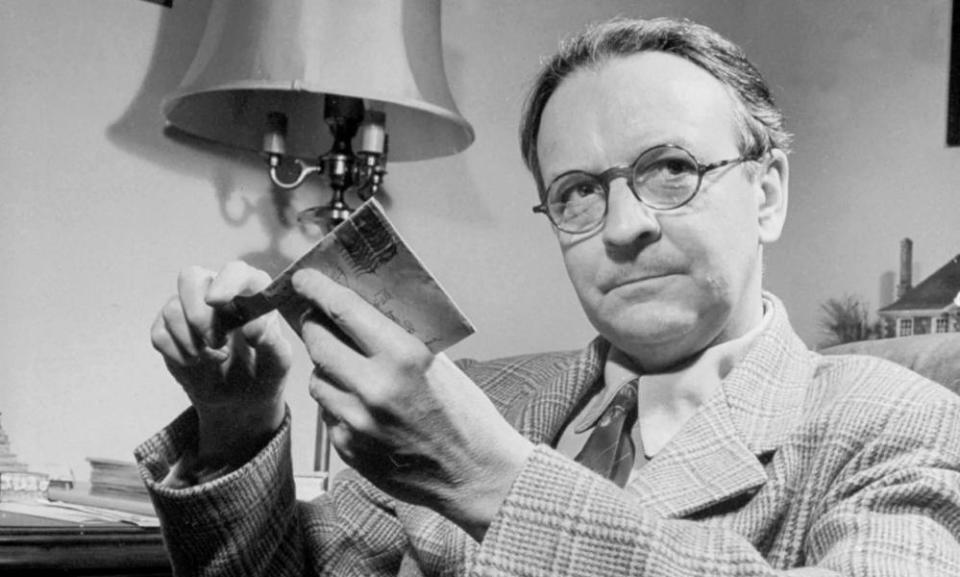Unseen spoof by Raymond Chandler shows writer's 'human side'

Best known for his hardboiled stories starring private detective Philip Marlowe, a more playful side of Raymond Chandler is set to be revealed in a previously unpublished spoof of corporate culture, which was discovered in the Bodleian library in Oxford.
Chandler’s Advice to an Employer, which was found with several of the author’s papers, is being published in the Strand magazine this month for the first time. Short and comic, it sees the author doling out tongue-in-cheek advice such as, “Always tell your secretary you have nothing to dictate until it is time for dinner. Then rattle off a lot of letters you have left since domesday.”
In a series of “personal requests we have heard from time to time, from employees to employer”, Chandler also advises: “Please do not go to sleep in the middle of the day”, “Please do not fall on your employee or their animals”, and “No working while drinking.”
The piece is believed to have been written between 1950 and 1954, when Chandler employed Juanita Messick as his private secretary. According to Dr Sarah Trott, professor of American studies and history at York St John University, Chandler and Messick were close friends.
Trott said that while “many people described Chandler as acerbic and quiet” – the director Billy Wilder called him “bad tempered – kind of acid, sour, grouchy”, the piece shows a different side to him. It is likely to have been written from Messick’s perspective “as a chastisement” of Chandler’s own work ethic, she said.
“Advice to an Employer shows us two significant facets of Chandler’s personality that enhance our understanding of the author. While it illustrates his renowned humor and wit, it also shows a far more personal, human side,” Trott writes in the Strand. “This light-hearted and teasing tone is infrequently seen in Chandler’s personal correspondence. Chandler’s guard has dropped completely, allowing us a glimpse behind the curtain. For me, this is the real Chandler.”
Related: Dames, detectives and dope: why we still love hardboiled crime
The Strand’s editor, Andrew Gulli, who has previously published unseen stories by authors including HG Wells, Louisa May Alcott and John Steinbeck, agreed. “This will show a humorous side to Chandler, perhaps this might lend credence to the theory that comedians can have a very serious and dark side and that authors of dark works can be very funny,” said Gulli. “I can imagine him smoking his pipe, and having a drink while he was typing this and asking himself how his life would have been different had he dodged getting sacked by his boss while working as an oil executive.”
Chandler became a writer when he was fired from the Dabney oil syndicate over his drinking in 1932. The Big Sleep, the first of his Marlowe novels, was published in 1939.

